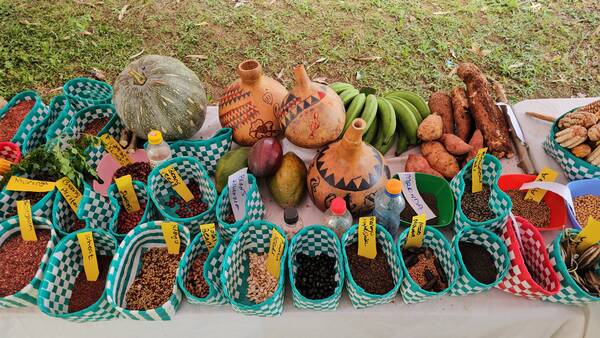Building Nature-Positive Seed Systems for Community Seed Banks in Kenya and India
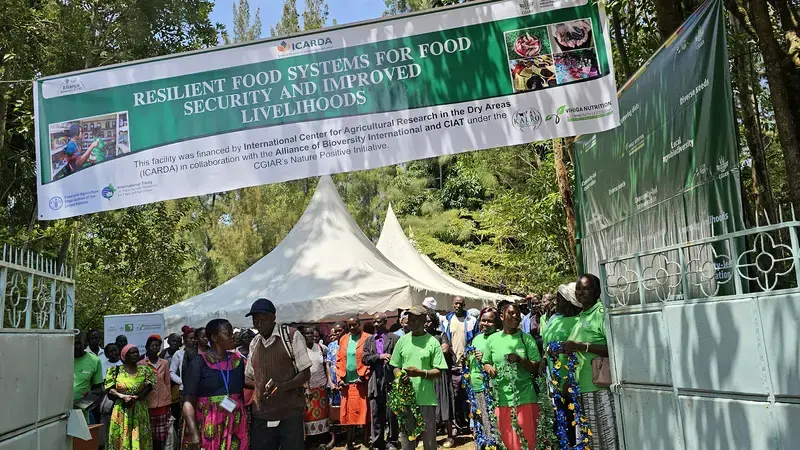
Harnessing the Indigenous knowledge of smallholder farmers struggling with climate change, Community Seed Banks (CSB) are at the center of in-situ agrobiodiversity conservation and development of resilient crops in Kenya and India.
Across the diverse Kenyan and Indian landscapes, a climate-smart agricultural revolution is underway, championed by the CGIAR Initiative Nature Positive Solutions (NPS), which implements nature-positive solutions-based agrifood systems supporting local food and livelihoods. In both countries, Community Seed Banks, a vital component of NPS, are integral to preserving agrobiodiversity, serving as a cornerstone for in-situ conservation efforts critical for enhancing local economies through sustainable, nutritious, and wholesome food production and forming a foundation for sustainable agriculture through collaboration with stakeholders in Kenya, India, and beyond. These seed banks, revolutionary in their focus on safeguarding robust seeds for climate resilience, food security, and livelihoods, play a key role in developing resilient crops and protecting agrobiodiversity, thus fostering community resilience and agricultural sustainability.
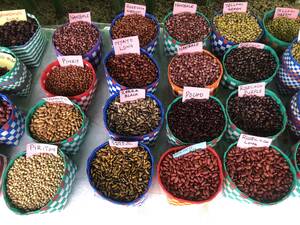
Kenya - Building Partnerships and Strengthening Communities
Back in 2022, Dr. Zewdie Bishaw, ICARDA’s Seed Systems, International Nurseries, and Seed Health Research Team Leader, attended an NPS inception workshop in Kisumu, Kenya, as ICARDA lead on conserving local plant varieties and enhancing seed quality while exploring commercial agri-opportunities. Partnerships with national stakeholders are crucial to the success of NPS, and ICARDA engages with local organizations like the Kenya Agricultural and Livestock Research Organization (KALRO), Seed Savers Network-KENYA, the Vihiga, Kabudi, and Nyando Community Seed Banks.
Following the inception workshop, a follow-up mission to develop a public-private-producer (PPP) partnership was carried out by Abdoul Aziz Niane, ICARDA’s Regional Coordinator of the Arab Peninsular Research Program, and Seid Ahmed Kemal, legume pathologist at ICARDA. During the mission, a PPP workshop took place with ICARDA, the Kenyan Agriculture and Livestock Research Organization (KALRO), the Genetic Resources Research Institute (GeRRI), the Seed Saver Network (SSN), the community seed banks of Vihiga, Kabudi, and Nyando, the Alliance of Bioversity and CIAT. As part of the PPP mission, the ICARDA and Alliance teams visited the Community Seed Banks, discussed and agreed upon interventions such as advocacy for official government recognition of the informal seed sector, training, developing a catalog of farmer’s preferred cultivars, construction of seed processing shelters, and provision of equipment used for seed and vegetable drying, threshing, and cleaning, and long-term storage.
To strengthen Community Seed Banks and help integrate farmer’s indigenous knowledge with modern science, ICARDA supports local farmers to improve seed quality and explore new markets through training in seed science and technology, as well as linking community seed banks with local crop producers.
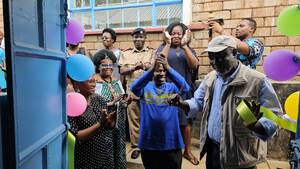
A key milestone in the project was the launch of the Vihiga, Kabudi, and Nyando Community Seed Bank processing facility along with a mini seed fair in September 2024, in Esalwa Village. Organized by the Alliance of Bioversity International and CIAT and ICARDA, the event marked a significant achievement in enhancing access to resilient seeds conserved by the Community Seed Bank and encouraging the use of indigenous crops, due to their natural resilience.
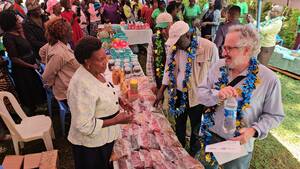
The Vihiga, Kabudi, and Nyando Community Seedbanks and processing facility provides farmers with better access to seeds for cultivating traditional leafy vegetables and offers commercial services such as flour production. Such facilities boost food security, expand market reach, and improve overall sustainability of Community Seed Banks. Quality certification from the Kenya Bureau of Standards (KEBS) is planned to help market penetration for the products.
India - Expanding Initiatives with Local Focus
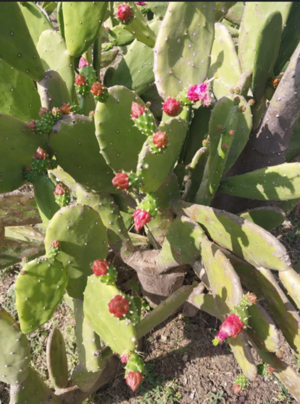
In India, ICARDA's approach through the Nature Positive Solutions Initiative was straightforward, leveraging its established presence at ICARDA’s Amlaha platform for food legume research. In a 2022 inception workshop, local stakeholders and experts agreed on promoting sustainable legume production and restoring degraded lands by cultivating spineless cactus to enhance soil productivity and provide an important fodder resource.
The ICARDA team pinpointed two promising clusters (groups of farmers) in Maharashtra: the Akole cluster in Ahmednagar and the Shahada cluster in Nandurbar district. These areas presented opportunities to enhance food security by cultivating spineless cactus in harsh conditions while supporting community initiatives to conserve native crop diversity and sustainable agricultural practices.
To address agricultural challenges tied to the NPS, the implementing agency in India, the Bharatiya Agro Industries Foundation (BAIF), arranged a field trip to the Akole cluster in September 2022 for project partners and scientists. Furthermore, a scoping report, including a baseline survey, will be submitted to CGIAR, covering aspects like drought-resistant crop varieties, conservation of native crop diversity, and technical assistance for crop suitability mapping.
Strengthening Impact and Reach
Community seed banks represent a revolutionary approach to the in-situ conservation of agrobiodiversity. Unlike ex-situ conservation methods, these banks place farming communities at the core of conservation and utilization efforts, emphasizing their indigenous knowledge and experience in agricultural practices. In Kenya, the focus remains on strengthening partnerships and supporting community seed banks, like the thriving projects in Vihiga, Kabudi, and Nyando, which strive to enhance capacities and infrastructure for quality seed production, processing, storage, and distribution for subsequent multiplication serving as a significant advancement. In India, the strategy involves leveraging the Amlaha platform’s strengths and expanding activities to maximize impact in target clusters.
ICARDA’s efforts under CGIAR’s Nature Positive Solutions Initiative demonstrate the power of collaboration, innovation, and persistence. By forging partnerships, advocating for supportive policies, and aiding local communities, the seeds of change we sow today hold the promise of a sustainable agricultural future in both countries.
